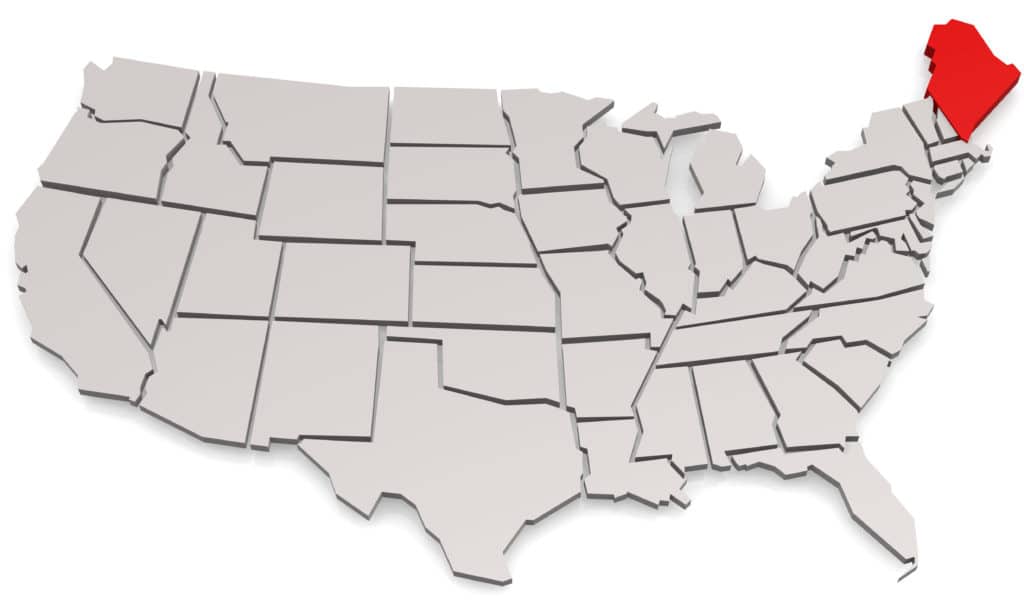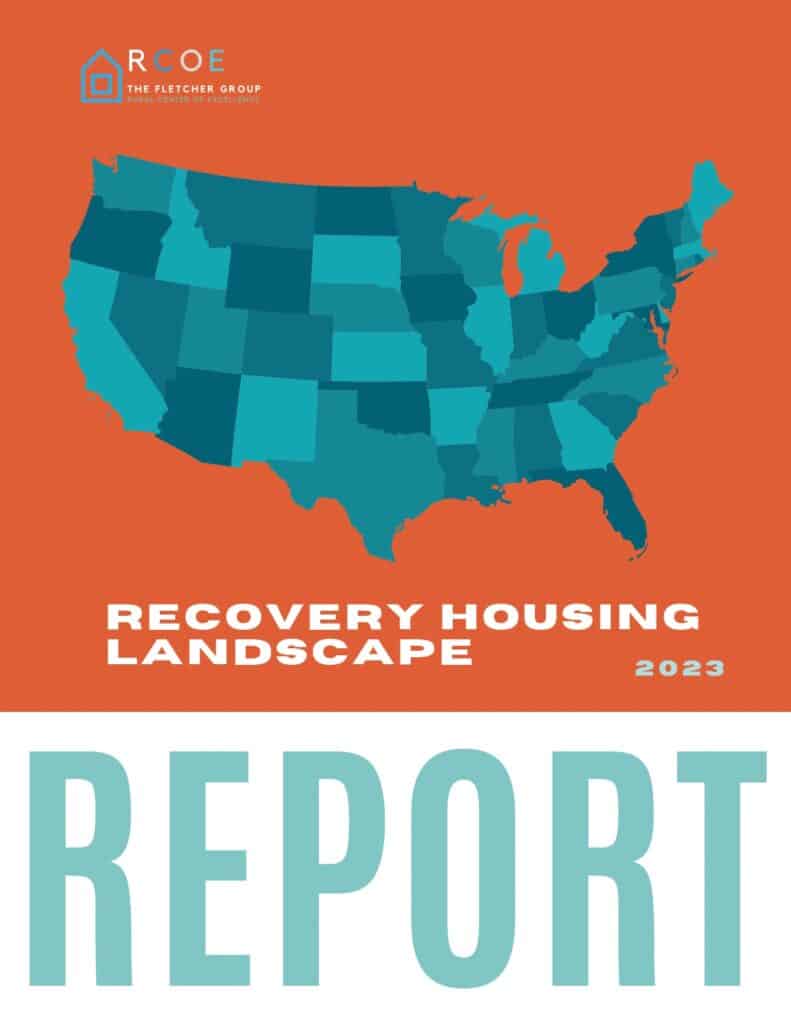
Maine State Laws, Policies and Funding
RH terminology used by the Department of Health and Human Services (DHHS) “RR’s offer a healthy, safe, substance-free living environment to support individuals in treatment and recovery for substance use disorder. Recovery Residences must be certified by the Maine Association of Recovery Residences (MARR), accept individuals who are receiving MAT, and meet quality standards.”
https://www.maine.gov/dhhs/obh/support-services/housing-services
Accreditation, Certification, and State Licensing Requirement: Certification required for state funding.
RH Law(s): LD 964 (2021) “An Act To Expand Access to Certified Substance Use Disorder Recovery Residence Services.”
https://legislature.maine.gov/legis/bills/getPDF.asp?paper=HP0710&item=1&snum=130
LD 353 (2019) An Act Regarding the Safety of Recovery Residences
https://legislature.maine.gov/legis/bills/display_ps.asp?paper=HP0279&PID=undefined&snum=129&sec0
LD 303 (2019) An Act To Require Recovery Residences for Persons with Substance Use Disorder Be Equipped with Naloxone and To Exempt from Criminal Liability Persons Administering Naloxone
https://legislature.maine.gov/bills/display_ps.asp?snum=129&paper=HP0227&PID=1456
LD 1523 (2019) This bill adds definitions of “person recovering from substance use disorder” and “recovery residence” to the laws governing the substance use disorder programs of the Department of Health and Human Services and directs the department to establish a voluntary certification process for recovery residences. It also directs the Maine State Housing Authority to create a pilot project to provide a short-term rental subsidy to a person recovering from substance use disorder to reside in a certified recovery residence.
https://legislature.maine.gov/bills/display_ps.asp?snum=129&paper=SP0472&PID=1456
The “Maine Substance Use Disorder Prevention Treatment and Recovery Act.” Subchapter 3-A: Recovery
5 §20057. Certified recovery residences
https://legislature.maine.gov/statutes/5/title5ch521sec0.html
RH Legislation: None/unknown
Regulations: None/unknown
SABG Program: The “Planned Priority Areas” documents for your state’s Substance Abuse Prevention and Treatment Block Grant (SABG) program and Community Mental Health Services Block Grant (MHBG) program do not specifically mention recovery housing as a priority, nor do they list recovery support services as an allowable activity. To learn more about specific recovery housing activities that are eligible for funding through these grant programs, please reach out to your state’s Single State Agency (SSA) that’s responsible for administering these funds by visiting https://www.maine.gov/dhhs/obh
SOR Program: Your state’s Department of Health and Social Services (DHSS) has previously funded recovery activities using State Opioid Response (SOR) funds. To learn more about specific recovery housing activities that are eligible for funding through this grant program, please reach out to your state’s Single State Agency (SSA) that’s responsible for administering these funds by visiting https://www.maine.gov/dhhs/obh
Medicaid Funding: Nothing in the state Medicaid plan suggests direct support for RH, however, certain covered activities could evolve to be provided in RH settings include skill development, peer support, case management, and counseling.
https://www.maine.gov/sos/cec/rules/10/ch101.htm
NARR Affiliate Status: Yes, Maine Association for Recovery Residences (MARR)
Housing Assistance Funding: https://www.mainehousing.org/
Directory/Registry:
Certified Recovery Homes
https://www.mainerecoveryresidences.com/certification-1#
Funders
Machias Savings Bank Community Development Foundation
The Machias Savings Bank Community Development Foundation was established in Maine in 1997 and is the giving branch of the Machias Savings Bank. The Foundation’s mission is to support community and economic development in small Maine communities.
Regions: Funding is directed towards seven counties in Maine, including Cumberland and Penobscot and the rural counties of Aroostook, Knox, Hancock, Waldo, and Washington.
Issues Supported: The Machias Savings Bank Community Development Foundation is committed to supporting projects that facilitate community development, especially in small and rural communities. Examples of issues funded include affordable housing, childcare support, and workforce development.
Grant Process and Application: Grant application deadlines may vary depending on the grant program. The Community Development Grant cycle occurs on a yearly basis, with the deadline usually falling in April. Visit the Foundation’s website to find out more about the grantmaking application process.
Grant-Making Per Year: In 2021, the Foundation provided grants in the amount of $1 million dollars to Maine nonprofit organizations.
Recovery and Supportive Housing Grantee Example: Arise Addiction Recovery is a grantee located in Machias, Maine, in rural Washington County. Arise offers a multi-step residential recovery program, including transitional housing and services for maintaining sobriety.
Maine Community Foundation
Based in Portland and Ellsworth, the Maine Community Foundation was founded in 1983 and funds programs that support communities and individuals throughout the state. The Foundation’s goals are to support healthy communities and strong economies. The Foundation partners with county and regional committees to ensure funding initiatives meet communities’ needs.
Regions: The Maine Community Foundation serves all areas of Maine, including both rural and non-rural counties. The Foundation has 14 county and regional committees serving the rural counties of Androscoggin, Aroostook, Cumberland, Hancock, Kennebec, Knox, Oxford, Penobscot, Piscataquis, Waldo, and Washington counties, as well as partially rural York County. One committee represents both rural counties of Franklin and Somerset, and another committee represents both rural counties of Lincoln and Sagadahoc.
Issues Supported: The Maine Community Foundation’s grants cover a variety of issue areas, including community well-being, climate, and healthy aging. Though there are numerous grant funds, the grassroots Community Building grant program is the largest and provides funding for local organizations that strengthen Maine’s communities. Grants are usually designed to provide either project-specific or general support.
Grant Process and Application: The application deadline for the Community Building grant program usually falls in February. Find out about more grant programs and contact information here.
Grant-Making per Year: Since its founding, the Maine Community Foundation has funded over $500 million in grants. In 2020, the Maine Community Foundation provided grants in the amount of $20 million.
Recovery and Supportive Housing Grantee Example: Sunrise Opportunities is a grantee in Machias, Maine that serves rural Hancock and Washington Counties. Sunrise Opportunities offers counseling, housing, and residential mental health treatment for community members struggling with intellectual disabilities and substance use disorder.
Maine Health Access Foundation
The Maine Health Access Foundation was established in 2000 and is based in Augusta, Maine. The Maine Health Access Foundation is a health conversion foundation established when Blue Cross and Blue Shield of Maine was purchased by Anthem Insurance Companies. The Foundation’s mission is to improve the health and well-being of all Maine residents and communities.
Regions: The Maine Health Access Foundation serves all counties in Maine, with a specific focus on rural health care systems.
Issues Supported: Grant-making strategies are designed to strengthen Maine’s healthcare systems, increase healthcare accessibility, and ultimately improve the health and well-being of all Maine residents. Grants aim to increase insurance coverage, support the healthcare workforce, bolster rural health systems, and support substance use disorder treatment. The Foundation has several funding programs. The Systems Improvement and Innovation Responsive Grants and Community Responsive Grants programs are funding initiatives that include health and substance use disorder.
Grant Process and Application: The first step in applying for funding is to send a letter of inquiry. The deadline for submitting a letter of inquiry is usually in December. Find out more information by visiting the grant program website.
Grant-Making Per Year: The Foundation provided grants in the amount of $5.5 million in 2020 and $4.7 million in 2019.
Recovery and Supportive Housing Grantee Examples: Healthy Acadia in Ellsworth serves rural Hancock County and provides substance use disorder treatment services and mental health support. The organization also provides housing for women recovering from substance use disorder. The residential space is designed to provide resources, programs, and a safe environment for recovering women and their children.
Maine Opioid Settlement Funds
Total Settlement Funds in Maine
- $130 million
Fund Distribution
- 20% of funds to the state
- 30% of funds to local governments
- 50% in the Maine Recovery Fund
Timeline
- Funds from three distributors will be paid over 18 years
- Funds from Johnson & Johnson will be paid over 9 years
- Funding was expected to begin in April 2022
Application Process
- Not established
Key Contacts
- Office of the Attorney General Aaron M. Frey, 207-626-8800, attorney.general@maine.gov
Key Links
- Maine Memorandum of Understanding
How About Your County?
To get a quick overview of the resources available in your county, including gaps that may need to be addressed, visit the Recovery Ecosystem Index Map developed through a partnership between the Fletcher Group Rural Center of Excellence, the NORC Walsh Center at the University of Chicago, and East Tennessee State University.
Need More Info?

A year in the making by a staff of ten, the Fletcher Group’s 82-page Recovery Housing Landscape Report provides an in-depth overview of the most recent laws, policies, and funding affecting recovery housing. You’ll find sections devoted to state laws, SAMHSA funding, Medicaid, corrections, and housing assistance plus numerous links to valuable resources and official documents. To see the complete downloadable report, click the image to the left.
This web page is supported by the Health Resources and Services Administration (HRSA) of the U.S. Department of Health and Human Services (HHS) as part of an award totaling $13.7 million with 0% financed with non-governmental sources. The contents are those of the author(s) and do not necessarily represent the official views of, nor an endorsement, by HRSA, HHS, or the U.S. Government.